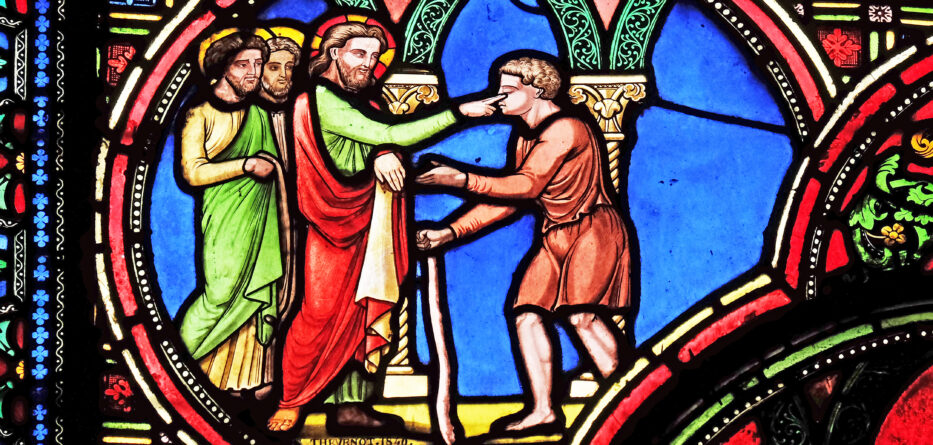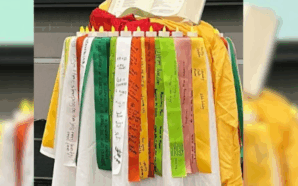Homily for 4 February 2024
Job 7:1-4,6-7; Psalm 147; 1 Corinthians 9:16-23; Mark 1:29-39
Listen at https://soundcloud.com/frank-brennan-6/homily-4224
In today’s gospel, Jesus is well underway with his public ministry of preaching, curing the sick and driving out demons. Once again, Mark does not give us much of the content of the teaching. But he leaves us in no doubt that Jesus is working flat strap. He’d been on the go all day and then ‘after sunset, they brought to him all who were ill or possessed by demons. The whole town was gathered at the door.’ No doubt he felt more than a little drained, and in need of some peace and quiet, as we all do from time to time. ‘Rising very early before dawn, he left and went off to a deserted place, where he prayed.’
Those who put together the lectionary have decided to place this scene and rhythm of preaching, healing, taking on the demons and getting away for some prayer and reflection alongside the testing of Job who was a man of faith and good deeds. When tested, Job asked rhetorically : ‘Is not man’s life on earth a drudgery? Are not his days those of hirelings? He is a slave who longs for the shade, a hireling who waits for his wages. So I have been assigned months of misery, and troubled nights have been allotted to me.’ Job started out in life with wealth, happy family and a fine relationship with his God. The evil one taunts Yahweh with the challenge that Job would turn away if confronted with poverty, deprivation and evil. Job is tested on all fronts but ultimately professes his trust in God and is restored to a bounteous life. We’re meant to recall that Jesus will be tested unto death.
These past four months, we have all been contemplating the evil and moral complexity of the conflict in Gaza. The conflict was recently brought to the International Court of Justice with South Africa claiming that Israel was guilty of genocide. Israel was able to name an ad hoc judge to sit on the 17 member bench. Prime Minister Netanyahu named Aharon Barak, now aged 87. Barak had been President of the Supreme Court of Israel. As a judge, he led a constitutional revolution in Israel constraining populist and ultra conservative governments from pursuing policies which abused human rights of citizens whether they be Jews or Palestinians.
I daresay he had never been tested more sorely as a judge than when he sat on this case in the International Court. He had previously stated his judicial creed: ‘Security and human rights go hand in hand. There is no democracy without security; there is no democracy without human rights. Democracy is based upon a delicate balance between collective security and individual liberty’.
In this case, he said: ‘Genocide is more than just a word for me; it represents calculated destruction and human behaviour at its very worst. It is the gravest possible accusation and is deeply intertwined with my personal life experience.’[1]
He gave a chilling description of his early life:
‘I was five years old when, as part of Operation Barbarossa, the German army occupied the city in which I was born -Kaunas – in Lithuania. Within a few days, almost 30,000 Jews in Kaunas were taken from their homes and put into a ghetto. It was as if we were sentenced to death, awaiting our execution. On 26 October 1941, every Jew in the ghetto was instructed to gather in the central square, known as “Democracy Square”. Around 9,000 Jews were taken from the square on that day and executed by machine gun fire.’
The young boy Barak was ultimately smuggled out of the ghetto in a sack and a Lithuanian farmer hid him and his mother away behind a double wall in his house until liberation came on 14 August 1944.
In the International Court, unlike the majority of his fellow judges, Barak was ‘convinced that there is no plausibility of genocide’ by Israel. But he was prepared to join his fellow judges in ordering:
‘The State of Israel shall take immediate and effective measures to enable the provision of urgently needed basic services and humanitarian assistance to address the adverse conditions of life faced by Palestinians in the Gaza Strip’.
He said: ‘[I am] guided by my deep humanitarian convictions and the hope that this will alleviate the consequences of the armed conflict for the most vulnerable. Through this measure, the Court reminds Israel of essential international obligations, which are already present in the DNA of the Israeli military. This measure will ensure that Israel continues to enable the delivery of humanitarian aid to Gaza, which I see as an obligation arising under International Humanitarian Law’.
It will be many years before the technical legal arguments and detailed evidence are marshalled to determine whether there was a genocidal intent by Israeli authorities and military. But no doubt Aharon Barak has been put to the test as was Job.
He concluded: ‘I am not an agent of Israel. My compass is the search for morality, truth and justice. It is to protect these values that Israel’s daughters and sons have selflessly paid with their lives and dreams, in a war that Israel did not choose.’
Whatever the correct law of genocide, whatever the correctness of the court’s interim order, we can all draw inspiration from Barak who has been sorely tested
This week, I had the opportunity to visit the redwoods forest in the Muir Woods National Park outside San Francisco. There is a majestic stand of trees known as the Cathedral Grove. The founders of the United Nations (including the International Court) gathered there on 19 May 1945 just after the death of FDR recalling that President Roosevelt believed that national parks could be a source of inspiration and human renewal. The founders gathered there hoping that the profound beauty and serenity of the place could inspire them to pursue the program for world peace.
Leaving our deserted places and returning to our doors where the whole town is gathered demanding answers and help, let’s pray:
Praise the Lord, who heals the brokenhearted.
Praise the LORD, for he is good;
sing praise to our God, for he is gracious;
it is fitting to praise him.
The LORD rebuilds Jerusalem;
the dispersed of Israel he gathers.
Praise the Lord, who heals the brokenhearted.
He heals the brokenhearted
and binds up their wounds.
He tells the number of the stars;
he calls each by name.
R. Praise the Lord, who heals the brokenhearted.
Great is our Lord and mighty in power;
to his wisdom there is no limit.
The LORD sustains the lowly;
the wicked he casts to the ground.
Praise the Lord, who heals the brokenhearted.
From the start of 2024, Fr Frank Brennan SJ will serve as part of a Jesuit team of priests working within a new configuration of the Toowong, St Lucia and Indooroopilly parishes in Brisbane Archdiocese. Frank Brennan SJ is a former CEO of Catholic Social Services Australia (CSSA). Fr Frank’s latest book is An Indigenous Voice to Parliament: Considering a Constitutional Bridge, Garratt Publishing, 2023.
[1] See https://www.icj-cij.org/sites/default/files/case-related/192/192-20240126-ord-01-05-en.pdf








